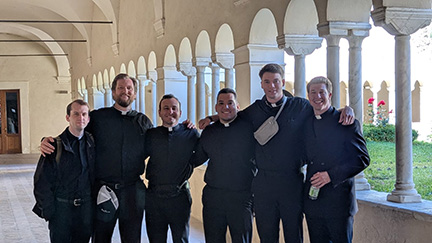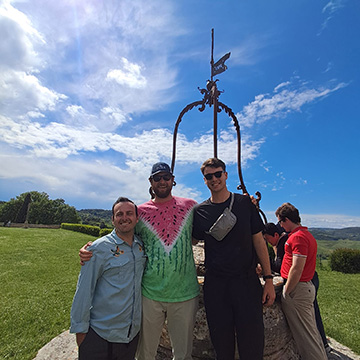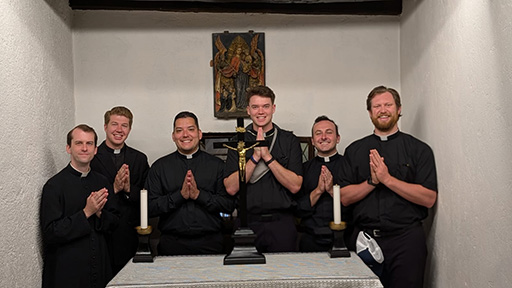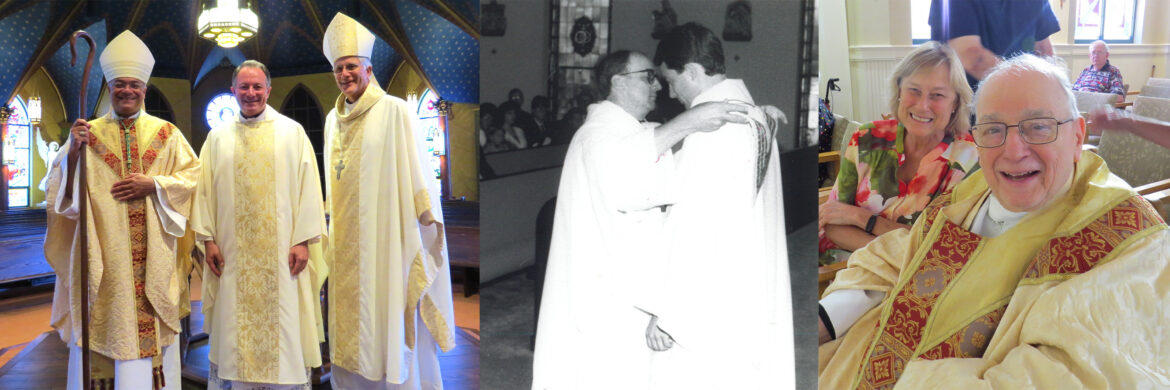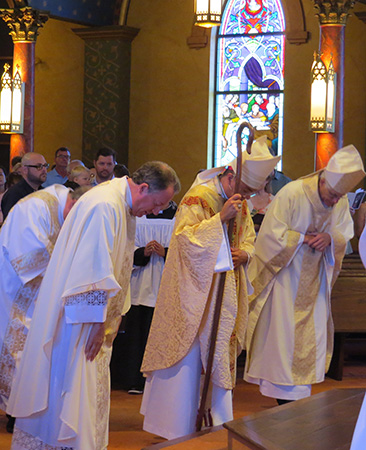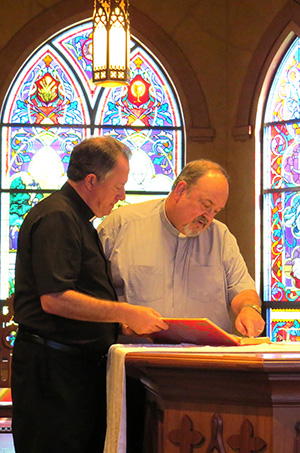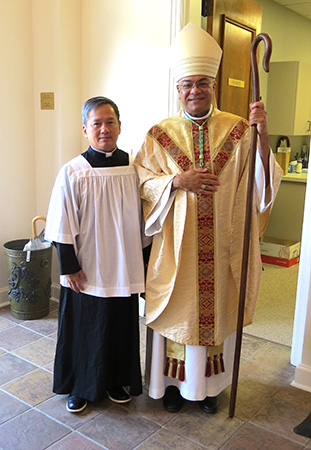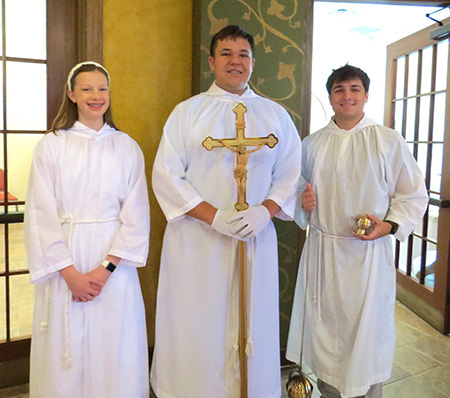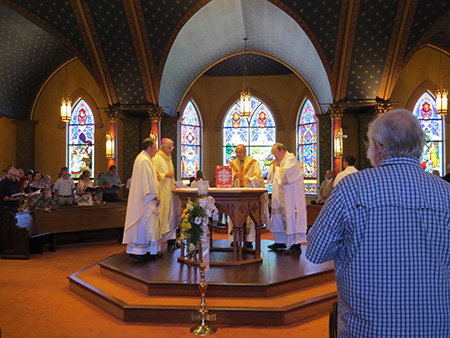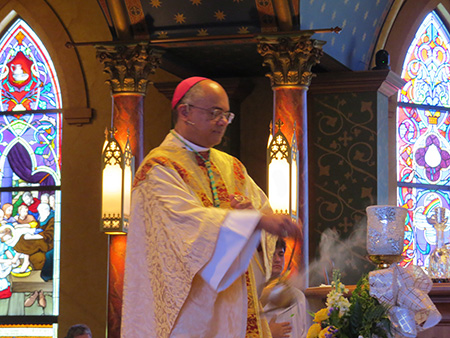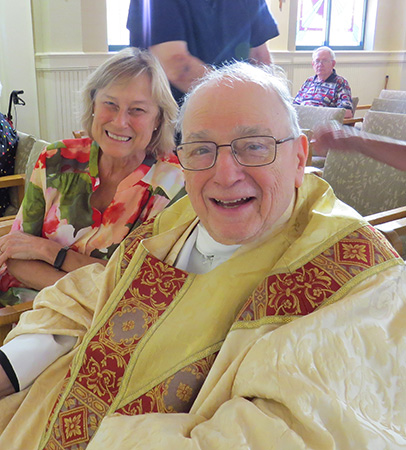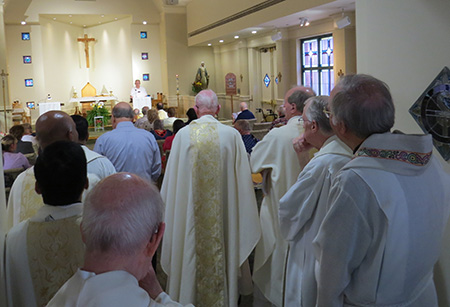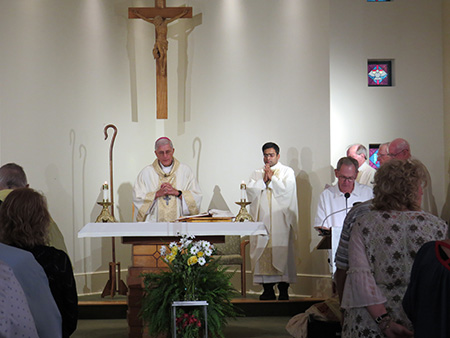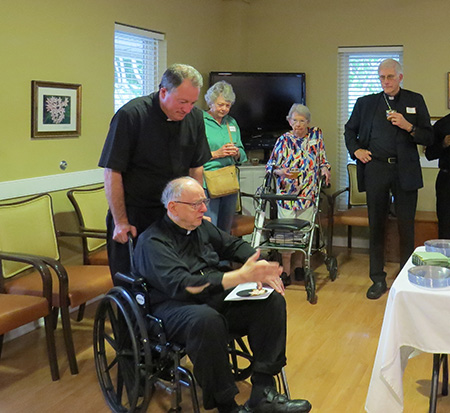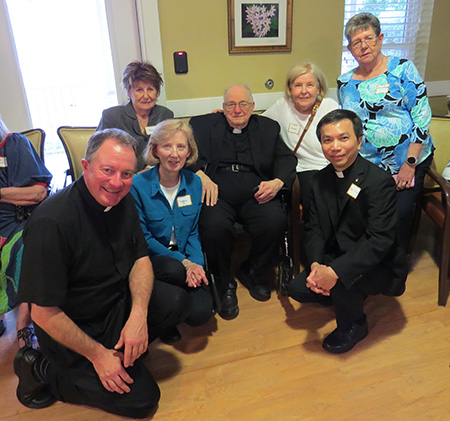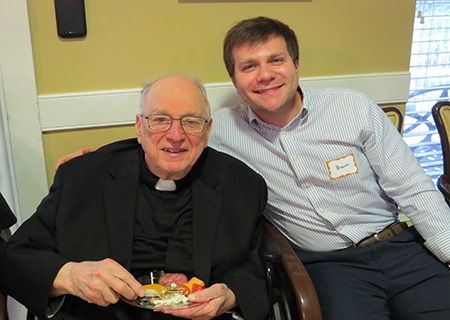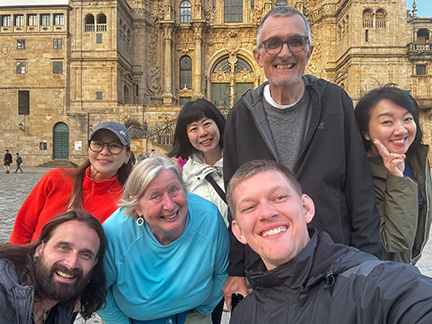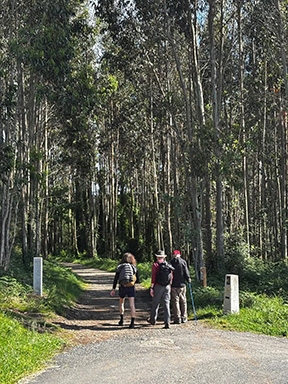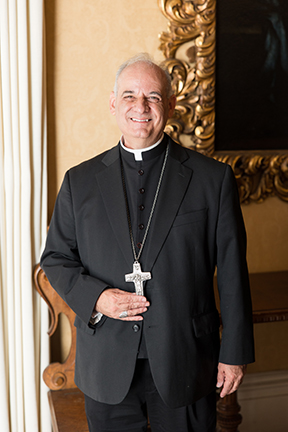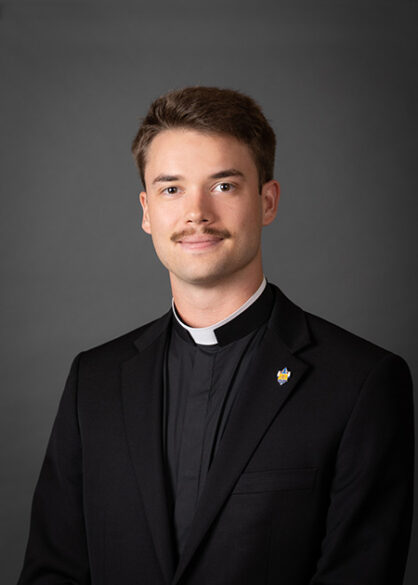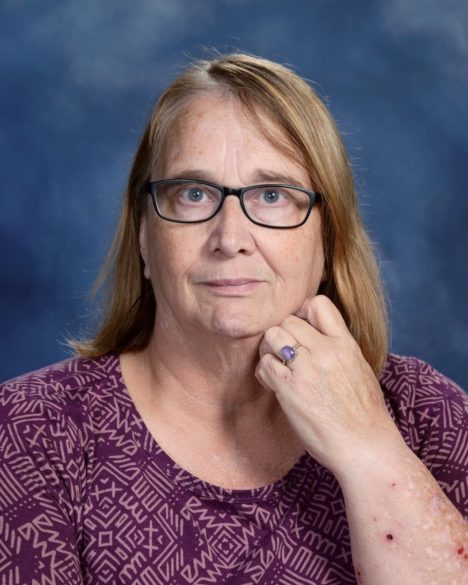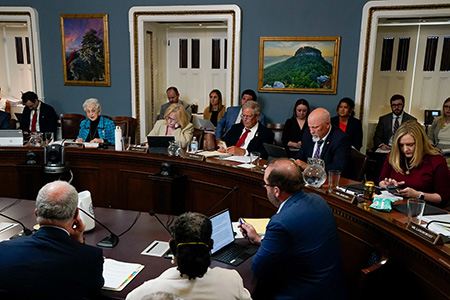By Madelyn Johnson
JACKSON – Grayson Foley and EJ Martin, seminarians for the Diocese of Jackson currently studying at Notre Dame Seminary in New Orleans, planned their pilgrimage to Italy months in advance. What they didn’t realize was that their visit would become a once-in-a-lifetime experience.
The two were called to join the Pilgrimage of Hope through Rome. After booking their trip in February, they were shocked to learn that a new pope – Pope Leo – had been elected the day before their flight to Rome.
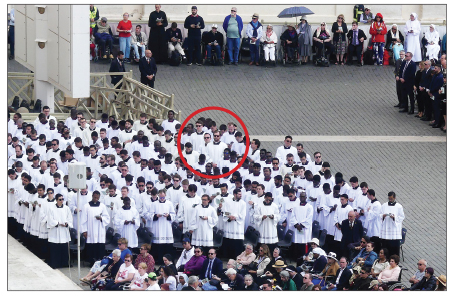
While in Rome, Grayson and EJ visited with other seminarians at the Pontifical North American College and spent time with EJ’s older brother, Sterling Foley, a seminarian with the Legionaries of Christ based at their House of Formation in Rome. The trio toured the city and visited all four major basilicas, walking through each Holy Door during this Jubilee Year.
“We went through all of the basilicas’ Holy Doors, continuously praying for the people back home in Mississippi and those who made the trip possible,” said Grayson Foley.
Shortly after their arrival, news broke that the Installation Mass for Pope Leo XIV – the first American pope – would take place on May 18. The seminarians were faced with a choice: should they stay and serve at the historic Mass? The answer was clear – yes.
Thanks to the hospitality of the Legionaries of Christ seminarians, tickets were secured for EJ, Grayson, and Grant Caillouet, a seminarian from the Diocese of Baton Rouge, to assist with the distribution of Communion during the Installation Mass at St. Peter’s Basilica. Approximately 200,000 people were in attendance. They were seated to the right of the altar and remained there until the Creed.
“During the Creed of the Mass, we were shuffled back into the adoration chapel within St. Peter’s,” Grayson recalled. “As EJ and I walked into the gigantic empty St. Peter’s, it was the part within the Creed when the words, ‘Et unam, sanctam, catholicam et apostolicam Ecclesiam’ are chanted – which translates to ‘And (I believe in) one holy, Catholic and apostolic church.’ This amazing sight of the Church of St. Peter and how foundational that spot is for the church brought tears to my eyes, but I had to keep it together because we were about to distribute Communion.”
Each seminarian was given 100 hosts to distribute to the crowd of thousands attending the historic Mass. They moved into the crowd calling out “Corpus Christi!” as they gave the Eucharist to the faithful.
“EJ is tall with long arms and he distributed Communion to as many as he could,” said his mother, Dana Martin, who witnessed the event via livestream. “There were barriers holding people behind the pathway and EJ kept pushing through the crowd with Communion – Corpus Christi! Corpus Christi! Corpus Christi!”
After they finished distributing the hosts, the crowd separated them. Grayson found his way back inside St. Peter’s and witnessed Pope Leo greeting dignitaries from around the world, including the King and Queen of France.
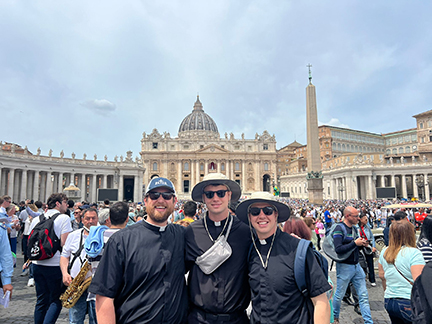
EJ reflected, “Being so close to the installation of the first American pope was incredible. Praying with Jesus in my hands in an empty St. Peter’s was incredible. But the most incredible part was distributing Communion to the people. How joyful they were to receive Jesus at that Mass. These people had probably been waiting five-plus hours for this opportunity. Such a blessed experience – one I will never forget.”
EJ and Grayson were honored to be part of such a profound moment in church history and are thankful to all who supported them in making the pilgrimage possible. As they continue their formation for the priesthood with the Diocese of Jackson, they carry with them the joy of having served Christ and His church in the heart of St. Peter’s – an experience that deepened their call and strengthened their commitment to serve God’s people.
